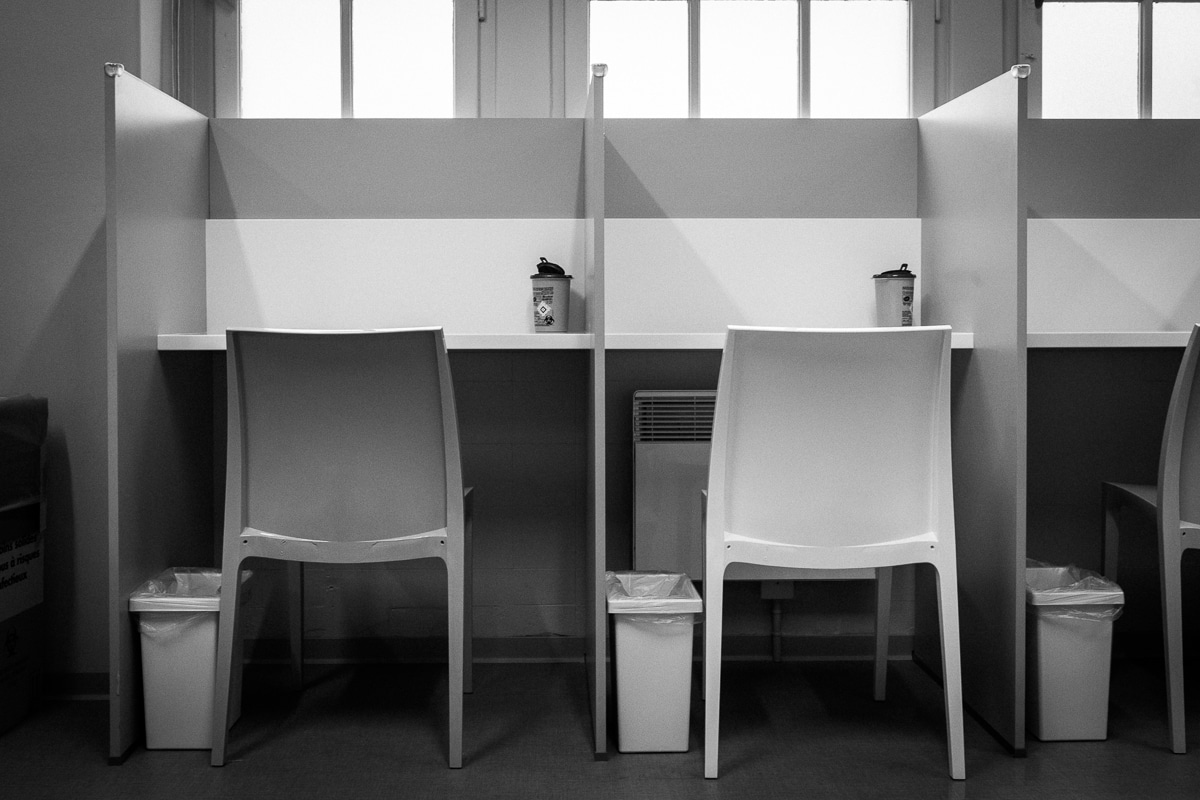A federal court has granted the Justice Department’s motion to dismiss a challenge from a Pennsylvania-based harm reduction center that’s been seeking to open a safe consumption site, where people could use banned drugs in a supervised setting while receiving treatment resources.
In an April 3 order and attached memo, the United States District Court for the Eastern District of Pennsylvania said that while it’s “self-evident” that the nonprofit Safehouse holds “noble intentions” to reduce the harms of the overdose crisis, it could not accept its arguments that the federal ban on providing safe consumption services violated the group’s religious rights.
The DOJ first blocked Safehouse from opening the safe consumption site (SCS, also known as overdose prevention centers) in Philadelphia under the Trump administration. Supporters hoped the department would cede the issue under President Joe Biden, who has promoted harm reduction policies as an alternative to criminalization, but the parties could not reach an agreement to allow the facility to open, despite months of “good faith” negotiations.
Safehouse had asserted that it should be exempt from federal prosecution because its harm reduction mission is guided by Judeo-Christian values, therefore entitling it to protections under the Religious Freedom Restoration Act (RFRA) and freedom of expression clause of the First Amendment.
“The noble intentions of Safehouse and its founders are self-evident … but their religious inspiration does not provide a shield against prosecution for violation of a federal criminal statute.”
But US District Judge Gerald Austin McHugh said that based on an analysis of the nonprofit’s federal filings and various other organizational documents, he is “persuaded that Safehouse is not a religious entity.”
However, McHugh did seem to empathize with the group and its objectives.
“The noble intentions of Safehouse and its founders are self-evident, and the public health crisis they seek to address continues unabated, but their religious inspiration does not provide a shield against prosecution for violation of a federal criminal statute barring its operation,” he said.
In the lead-up to the DOJ’s initial request for a dismissal of Safehouse’s lawsuit, several local lawmakers, including Democrats who champion marijuana legalization, asked the federal court to block Safehouse from opening and requested permission to file a brief in the case. A coalition of 20 Pennsylvania community groups also requested that the court allow it to intervene in the lawsuit.
A coalition of religious leaders later came out in support of the nonprofit, asking the court to reject the federal government’s request.
Talks were described as “productive,” leaving some advocates hopeful that the DOJ might drop the case. But that didn’t materialize.
The Justice Department previously declined to file a brief to offer its position on the harm reduction issue, and it asked the court for more time to respond in the “complex” case. In 2022, the DOJ said it was in the process of evaluating possible “guardrails” for SCS.
in January 2023, Safehouse and the department agreed to transfer the case to mediation before a magistrate judge to settle the issue. The talks were described as “productive,” leaving some advocates hopeful that the DOJ might drop the case altogether. But that didn’t materialize.
In October 2021, the Supreme Court had rejected a request to hear a case on the legality of establishing the Safehouse facilities.
In a 2022 report, congressional researchers highlighted the “uncertainty” of the federal government’s position on SCS—while pointing out that lawmakers could temporarily resolve the issue by advancing an amendment modeled after the one that has allowed medical marijuana laws to be implemented without DOJ interference.
Meanwhile, New York City opened the first locally sanctioned SCS in the US in 2022, and officials have reported positive results in saving lives.
National Institute on Drug Abuse (NIDA) Director Nora Volkow has tacitly endorsed the idea of authorizing SCS, saying that evidence has effectively demonstrated that the facilities can prevent overdose deaths.
Volkow declined to say specifically what she believes should happen with the ongoing lawsuit, but she said that research on SCS has “shown that it has saved a significant [percentage of] patients from overdosing.”
Gupta, the White House “drug czar,” previously said it’s critical to explore “any and every option” to reduce overdose deaths, which could include allowing SCS.
The National Institutes of Health (NIH) put out a pair of requests for applications in December 2021 to investigate how safe consumption sites and other harm reduction policies could help address the drug crisis.
A study published by the American Medical Association (AMA) in 2022 found that the recently opened New York City facilities had decreased the risk of overdose, steered people away from using drugs in public, and provided other ancillary health services to people who use drugs.
Rahul Gupta, the White House “drug czar,” previously said the Biden administration is reviewing broader drug policy and harm reduction proposals, including the authorization of SCS, and went so far as to suggest possible drug decriminalization.
Gupta, the director of the White House Office of National Drug Control Policy (ONDCP), said it’s critical to explore “any and every option” to reduce overdose deaths, which could include allowing SCS.
Photograph by Photo Claude TRUONG-NGOC via Wikimedia Commons/Creative Commons 3.0
This story was originally published by Marijuana Moment, which tracks the politics and policy of cannabis and drugs. Follow Marijuana Moment on Twitter and Facebook, and sign up for its newsletter.





Show Comments